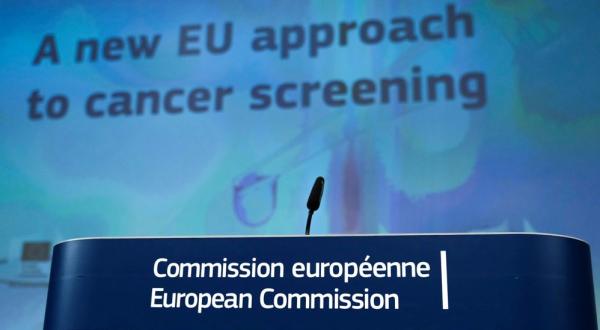"Latvijas formula": how can science play a stronger role in climate decisions?
Climate change, which until recently was one of the main topics on politicians’ and scientists’ agenda, now seems to be side-lined, waiting for better times. Whether environmental policy needs to change in the light of the current situation is one of the topics discussed in the TV programme “Latvijas Formula”.
The latest episode, hosted by Prof. Mārcis Auziņš from the University of Latvia (UL), features UL Prof. Normunds Stivriņš, Agrita Kiopa, Vice-Rector for Science at Rīga Stradiņš University (RSU), and Baiba Jansone, Assoc. Prof. at the Latvian University of Biosciences and Technology (LBTU). The main topic was environmental sustainability and climate change mitigation in Latvia.
- Part I of the episode
- Part II of the episode
Are political decisions based in science?
At the beginning of the discussion, Prof. Auziņš acknowledged that there are few people who deny climate change as a fact especially in academia, but also in society at large. At the same time, the decisions politicians make tend to appear to be driven by political or other interests, but less so by scientific research and recommendations.
RSU Vice-Rector for Science, Prof. Gunta Kiopa, is optimistic: ‘I think that
political decisions today are largely informed by science. If we look at European Union and Latvian policies, we can see that our ministries are increasingly calling for research related to climate change. This gives me the impression that the ice has melted—
we are truly thinking, observing, and gathering evidence.’ However, she acknowledges that there are still controversial areas where no clear consensus exists — for example, whether nuclear or biomass-generated energy can be considered green. In such cases, personal beliefs and political values tend to play a greater role in decision-making than scientific facts.
UL Prof. Stivriņš stresses that the role of scientists is not to convince everyone, but to generate and produce results based on facts. ‘It is particularly important to explain the results of these studies in a way that the public can understand, and then let people decide for themselves whether they agree or not.’
LBTU Assoc. Prof. Baiba Jansone takes a more cautious view: ‘Undoubtedly, our politicians have made significant efforts to bring about change, and in recent years there has been growing interest in scientific research. However, within the broader European context, there is a sense that we are too small to be truly heard — that our unique ecosystems are neither sufficiently valued nor understood. Perhaps it’s due to a lack of research from our region, or simply a lack of awareness — for example, that forests cover more than half of Latvia’s territory and are vital not only ecologically, but also economically. As a result, decisions are being made that put this economic asset at risk.’
What can science do to influence environmental policy?
To continue the discussion, Auziņš shared the experience of Prof. Richard Miller from the University of California, Berkeley. The professor is known for his outspoken views on how political decisions are often made without a proper understanding of topics such as the ozone layer, nuclear energy, and fossil fuels. He has also taken part in congressional hearings, where he spent several hours responding to questions from members of Congress. Building on this example, Auziņš invited the panel to reflect on the role of science in political decision-making in Latvia.
Prof. Stivriņš reveals that researchers at UL have been working on adapting climate models to Latvian conditions. ‘It is definitely a tool on which to base a vision of the future. What we are doing is not only modelling the future of climate, but also reconstructing the past, because it allows us to understand how accurately our climate models work. If models can reproduce evidence-based reconstructions by studying pollen or plant debris, knowing what the temperature was, we can conclude whether our assumptions about physical processes in nature are valid. This is a huge amount of work, involving specialists from different disciplines, and we still have a long way to go, but our calculations can already be used for decision-making.’
Jansone emphasises that the ice has been broken at the national level. ‘Our universities are involved in numerous working groups at both the Ministry of Agriculture and the Ministry of Climate and Energy. How quickly an issue is resolved and turned into legislation is another matter. I believe this practice should be broadened to include not only the responsible ministries but also members of the Saeima. Parliament brings together people with diverse backgrounds and levels of education, and it might be worthwhile for them to understand how scientists view these processes, what they have discovered, and what evidence underpins their conclusions.’
Kiopa agrees that such a practice could be highly valuable. ‘We can look at the example of the Ministry of Health, which includes expert positions such as chief specialists in various areas of the health sector. These roles are filled by professors and researchers from Rīga Stradiņš University, doctors from a range of specialities, and colleagues from the University of Latvia. In my view, this significantly enhances the quality of discussions. I agree that a further step forward would be to involve scientists more directly in the work of the Saeima.’
The discussion touched on a range of topics, from the impact of the war in Ukraine on the climate to the challenges of managing Latvia’s forests and the construction of wind farms, including public perceptions of their necessity.
Related news
 From Data Harmonisation to Artificial Intelligence: EUCanScreen Modernises Cancer Screening Across EuropePublic Health, International Cooperation
From Data Harmonisation to Artificial Intelligence: EUCanScreen Modernises Cancer Screening Across EuropePublic Health, International Cooperation


